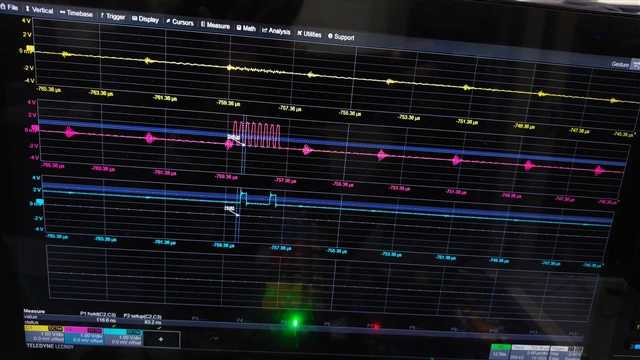Tool/software:
Hello Team,
I'm currently facing a issue in the SSI0 MISO pin. We flash the FPGA with MSP432E401Y via SSI in which writing in MOSI is perfectly fine and only reading from MISO is randomly wrong. We need to verify more than 2 lakh data in a array, where only few indexes are wrong.
While checking in the oscilloscope, the data from the FPGA MISO pin is as expected but only Microcontroller is wrongly decoding as below.


The expected data is 0x08 but it is read as 0xf8. The error is very random and this is not happening in the same index always.
Code for receiving data from MISO:
void spi_receive(unsigned char *buff, uint8_t bytes)
{
uint32_t i = 0;
while(SSIDataGetNonBlocking(SSI0_BASE, &buff[0]))
{
}
for (i = 0; i < bytes; i++) {
MAP_SSIDataPut(SSI0_BASE, 0x00);
MAP_SSIDataGet(SSI0_BASE, &buff[i]);
MAP_SysCtlDelay(10000);
}
}
Kindly support us to debug this further.







